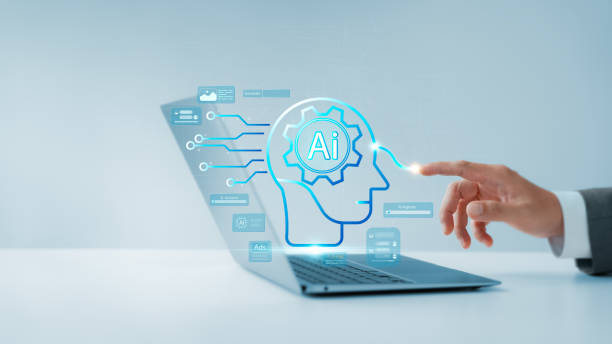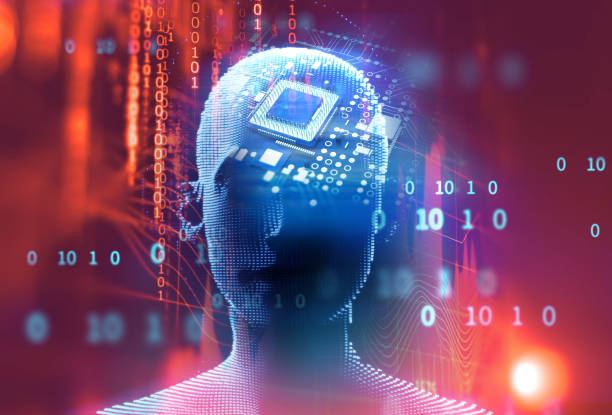What is Artificial Intelligence and What Impact Does It Have on the Job Market?
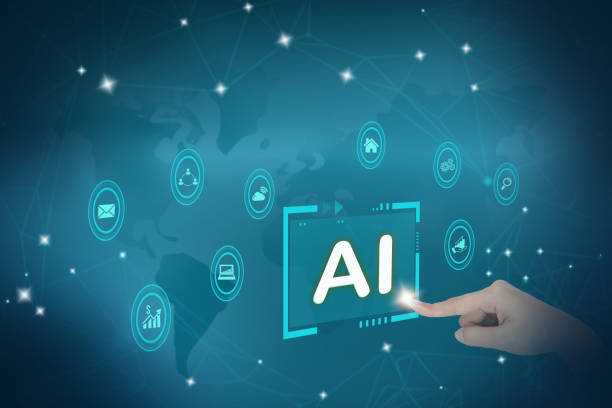
Artificial Intelligence (AI) refers to a computer system’s ability to perform tasks that typically require human intelligence.
These tasks include learning, reasoning, problem-solving, natural language understanding, and pattern recognition.
AI is rapidly advancing and has a profound impact on various industries and, specifically, the job market.
This transformation creates new opportunities while also presenting challenges for the workforce.
The impacts of AI on the job market are multifaceted.
On the one hand, AI can increase automation and eliminate some repetitive and routine jobs.
On the other hand, AI can boost productivity and pave the way for the creation of new jobs that require specialized skills in AI and interaction with intelligent systems.
To better understand the #Future_of_Work, it is necessary to thoroughly grasp the potentials and limitations of AI.
For example, in the manufacturing sector, robots and intelligent systems can perform production line tasks with greater accuracy and speed, leading to reduced costs and increased output.
In customer service, chatbots and virtual assistants can answer customer questions and resolve their issues, improving customer experience and reducing employee workload.
However, these developments require training and preparing the workforce to embrace new technologies and acquire the necessary skills.
In summary, AI is a powerful force that is transforming the job market, creating new opportunities and challenges.
To succeed in this era, individuals must be prepared to learn new skills and adapt to changes.
Don’t have a corporate website yet and missing out on online opportunities? With professional corporate website design by Rasawp,
✅ Double your business credibility
✅ Attract new customers
⚡ Free consultation for your corporate website!
Jobs at Risk and Emerging Jobs in the Age of AI
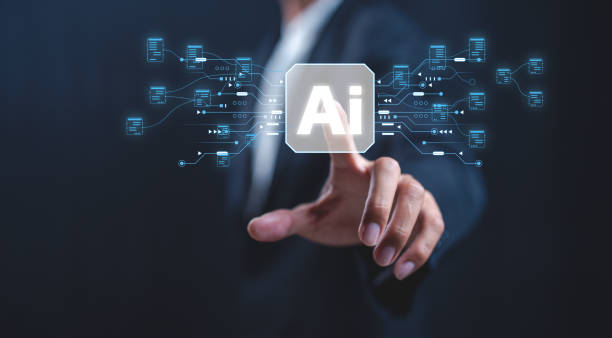
One of the most important aspects of the AI career future, is identifying jobs at risk of automation.
Jobs that involve repetitive, routine, and programmable tasks are more susceptible to automation than others.
These jobs include telephone operators, accountants, typists, and production line workers.
On the other hand, AI paves the way for the creation of new jobs that require specialized skills in the development, implementation, and management of intelligent systems.
These jobs include data scientists, AI engineers, machine learning specialists, data analysts, and AI consultants.
These emerging jobs require deep knowledge in mathematics, statistics, computer science, as well as soft skills such as problem-solving, critical thinking, and communication.
In addition to specialized jobs in the field of AI, there are also jobs that are enhanced by leveraging AI and play a significant role in the AI career future.
These jobs include doctors, lawyers, teachers, and managers.
AI can assist these individuals in performing their tasks, but it will not replace them.
For example, AI can help doctors in diagnosing diseases, lawyers in analyzing legal documents, and teachers in personalizing education.
Overall, to succeed in the age of AI, individuals must focus on developing soft skills and specialized skills that are required for interacting with intelligent systems.
These skills include problem-solving ability, critical thinking, creativity, communication, and teamwork.
Skills Required for Success in the AI Career Future
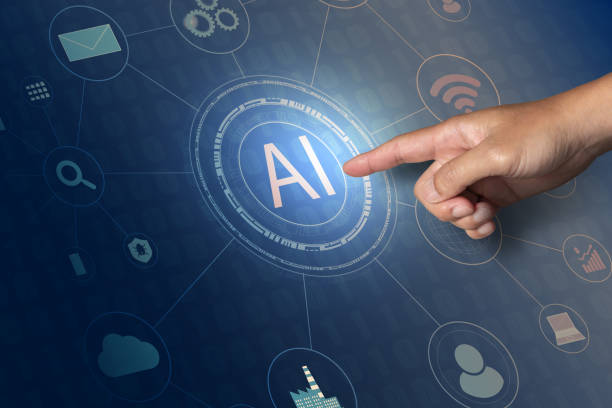
To succeed in the AI career future, it is necessary to acquire and strengthen specific skills.
These skills can be divided into two categories: specialized skills and soft skills.
Specialized skills include knowledge and mastery of AI concepts and techniques, machine learning, data mining, and programming.
To acquire these skills, one can participate in online and in-person training courses, study scientific books and articles, and engage in practical projects.
Programming languages such as Python and R are of particular importance, as they are the primary tools for developing and implementing AI systems.
Soft skills include problem-solving ability, critical thinking, creativity, communication, and teamwork.
These skills are crucial for interacting with intelligent systems and collaborating with other specialists.
To enhance these skills, one can participate in workshops, engage in group projects, and receive feedback from others.
Furthermore, strengthening communication skills and presenting information clearly and concisely is very important.
The AI career future requires a combination of technical knowledge and soft skills.
Individuals who can effectively combine these two categories of skills will have a greater chance of success in this field.
| Skill | Description |
|---|---|
| Machine Learning | Knowledge of learning algorithms and how to use them |
| Data Mining | Extracting patterns and useful information from data |
| Programming (Python, R) | Ability to write code for implementing AI systems |
| Problem Solving | Ability to identify and solve complex problems |
| Critical Thinking | Ability to evaluate information and make logical decisions |
The Role of Education and Skill Development in Preparing for the AI Career Future
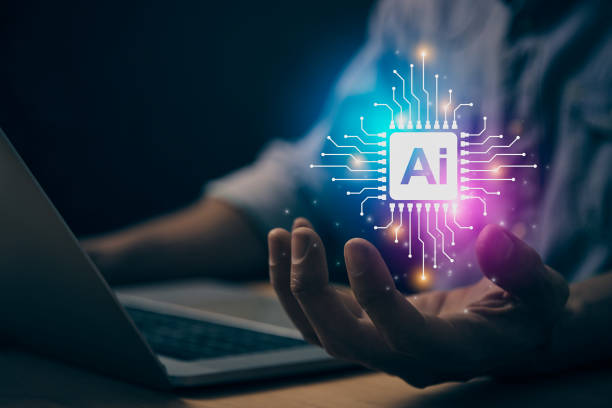
Education and skill development play a crucial role in preparing for the AI career future.
Given the rapid pace of AI technological advancements, continuous learning and skill updates are essential.
Individuals must be prepared to learn new concepts and techniques and continuously improve their skills.
Educational institutions and universities must align their curricula with the needs of the job market in the age of AI.
These programs should include instruction on AI concepts and techniques, machine learning, data mining, and programming.
Furthermore, these programs should help students acquire the soft skills necessary for success in this field.
In addition to formal education, online courses and workshops can also play a significant role in skill development.
These courses and workshops typically focus specifically on a particular topic and help individuals improve their skills in that area.
Furthermore, participating in practical projects and internships can help individuals gain hands-on experience and apply their skills in a real-world work environment.
The AI career future requires investment in education and skill development.
Individuals, educational institutions, and governments must collaborate to create a skilled workforce ready to embrace new technologies.
Does your current e-commerce website design not generate the expected sales for you?
Rasawp specializes in professional e-commerce website design!
✅ An attractive and user-friendly site aimed at increasing sales
✅ High speed and security for an ideal shopping experience⚡ Get a free online store design consultation with Rasawp!
Industries Most Affected by Artificial Intelligence
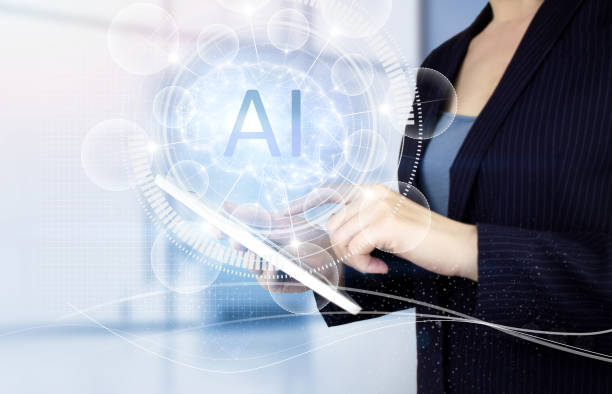
Artificial intelligence has a profound impact on various industries, but some industries benefit more from this technology than others.
These industries include:
- Healthcare AI can assist doctors in diagnosing diseases, developing new drugs, and providing personalized medical care.
- Finance and Banking AI can be used in fraud detection, risk management, and providing automated financial services.
- Manufacturing AI can be used in automating production lines, quality control, and predicting equipment failures.
- Transportation AI can be used in developing self-driving vehicles, optimizing transportation routes, and managing transportation fleets.
- Customer Services AI can be used in providing automated customer services, answering customer questions, and resolving customer issues.
In each of these industries, the AI career future creates new opportunities.
For example, in the healthcare industry, the need for AI specialists who can develop disease diagnosis algorithms and analyze medical data will increase.
In the finance and banking industry, the need for AI specialists who can design and implement fraud detection systems will increase.
In the manufacturing industry, the need for AI specialists who can program and manage robots and intelligent systems will increase.
Challenges Facing the Workforce in the Age of AI

While AI creates many opportunities, it also brings challenges for the workforce.
One of the biggest challenges is the replacement of some jobs by intelligent systems.
This can lead to increased unemployment and economic inequality.
To address this challenge, governments and organizations must design programs for training and empowering the workforce so that individuals can acquire new skills and be employed in new jobs.
Another challenge is the need for new skills.
With the advancement of AI technologies, skills that are currently in demand may become obsolete in the future.
Individuals must be prepared for continuous learning and updating their skills.
Furthermore, educational institutions must align their curricula with the needs of the job market in the age of AI.
The AI career future also comes with challenges.
Challenges such as data privacy protection, preventing discrimination in AI algorithms, and ensuring the ethical use of these technologies.
To address these challenges, appropriate laws and regulations must be formulated, and individuals and organizations must adhere to ethical principles in the development and use of AI.
The Role of Government and Policymaking in Managing Changes Caused by AI
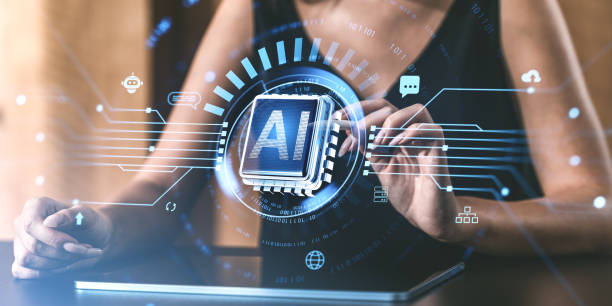
Government and policymaking play a vital role in managing the changes brought about by artificial intelligence.
Governments must formulate policies that protect the workforce from the negative effects of automation and create new opportunities for training and employment.
These policies can include the following:
- Investment in education and skill development Governments must invest in training and apprenticeship programs so that individuals can acquire the skills needed to work in the age of AI.
- Support for innovation and entrepreneurship Governments must support startups and entrepreneurs operating in the field of AI.
This support can include providing financial facilities, tax reductions, and creating a suitable business environment. - Formulation of appropriate laws and regulations Governments must formulate laws and regulations that protect data privacy, prevent discrimination in AI algorithms, and ensure that these technologies are used ethically.
- Creation of social safety nets Governments must establish strong social safety nets to support individuals who lose their jobs due to automation.
These nets can include unemployment insurance, retraining, and financial assistance.
The AI career future largely depends on correct and timely government policymaking.
Governments, in cooperation with the private sector and civil society, must formulate policies that leverage the benefits of AI and prevent its negative effects.
| Policy Area | Suggested Actions |
|---|---|
| Education and Skill Development | Investment in vocational and technical training, creation of online and in-person training courses |
| Support for Innovation | Providing financial facilities to startups, tax reductions for knowledge-based companies |
| Laws and Regulations | Formulation of data protection laws, prohibition of discrimination in algorithms |
| Social Safety Nets | Increased unemployment insurance coverage, provision of free retraining |
Individual Strategies for Adapting to Job Market Changes Caused by AI
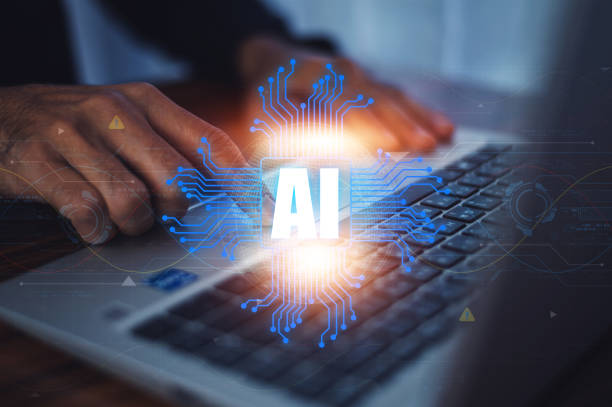
In addition to government policies, individuals can also adopt strategies to adapt to job market changes caused by artificial intelligence.
These strategies include:
- Continuous Learning Individuals must continuously update their skills and learn new ones.
This can include participating in online and in-person training courses, studying scientific books and articles, and engaging in practical projects. - Developing Soft Skills Soft skills such as problem-solving ability, critical thinking, creativity, communication, and teamwork are very important in the age of AI.
Individuals should focus on developing these skills. - Changing Mindset Individuals should have a positive attitude towards new technologies and be prepared to embrace change.
- Networking Connecting with other professionals and activists in the field of AI can help individuals find new job opportunities and learn from others’ experiences.
- Entrepreneurship Starting one’s own business in the field of AI can be an excellent way to create new job opportunities and benefit from this technology.
The AI career future creates many opportunities for individuals who are prepared to adapt to changes.
By continuous learning, developing soft skills, changing their mindset, networking, and entrepreneurship, individuals can succeed in this new era.
Are you tired of losing business opportunities due to not having a professional corporate website?
Rasawp, with professional corporate website design, helps you:
✅ Build a powerful and reliable brand image
✅ Convert website visitors into loyal customers
⚡ Get a free consultation now!
Case Study of Companies That Successfully Used AI in Their Businesses
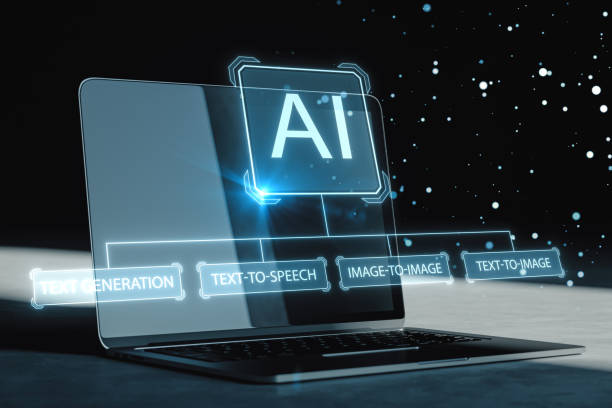
A case study of companies that have successfully used artificial intelligence in their businesses can provide valuable insights into how to leverage this technology.
Some of these companies include:
- Amazon This company uses AI in various areas such as product recommendations, warehouse management, and customer service.
- Google This company uses AI in various areas such as internet search, language translation, and the development of self-driving cars.
- Netflix This company uses AI to recommend movies and series to users and improve the user experience.
- Tesla This company uses AI for the development of self-driving cars and improving vehicle performance.
These companies demonstrate that AI can be used in various industries, leading to improved productivity, reduced costs, and increased customer satisfaction.
The AI career future requires specialists who can implement and manage these technologies in businesses.
Predicting the AI Career Future in Iran and Globally
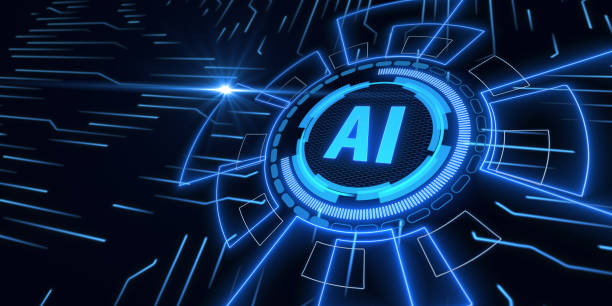
Predicting the AI career future in Iran and globally requires examining various factors.
Given the rapid pace of AI technological advancements, accurate future prediction is difficult, but some general trends can be identified.
Globally, the demand for AI specialists is expected to significantly increase in the coming years.
This demand will be particularly high in industries such as healthcare, finance and banking, manufacturing, and transportation.
Furthermore, it is expected that new jobs will be created in the field of AI that do not currently exist.
In Iran, the AI career future is also promising.
Given the country’s high potential in information and communication technology, AI is expected to play a significant role in the country’s economic development.
The Iranian government has also focused on AI development and has formulated programs to support knowledge-based companies and train specialized human resources in this field.
However, to realize this potential, challenges such as the shortage of specialized human resources, weak information technology infrastructure, and legal and regulatory limitations must be addressed.
Frequently Asked Questions
| Question | Answer |
|---|---|
| What impact will AI have on the future job market? | AI will automate repetitive jobs, but at the same time, it will create new and more complex jobs in areas such as development, maintenance, and training of AI systems. |
| Which jobs are most at risk of being replaced by AI? | Jobs that involve repetitive, rule-based tasks with low need for creativity or emotional intelligence, such as some manufacturing, data entry, and simple customer service roles, are most at risk. |
| What skills are essential for success in the future job market with AI? | Skills such as critical thinking, complex problem-solving, creativity, emotional intelligence, data literacy, the ability to work with AI, and lifelong learning are of high importance. |
| Will AI lead to widespread unemployment? | Some jobs will be lost, but history shows that new technologies, instead of widespread unemployment, reshape the job market and create new jobs. The need for adaptation and retraining is crucial. |
| What new job opportunities will emerge with the advent of AI? | Jobs such as Machine Learning Engineer, Data Scientist, AI Ethicist, Human-AI Interaction Designer, and Digital Transformation Consultant are among the new opportunities. |
| What is the role of education in preparing for the AI-driven career future? | Education should focus on developing soft skills, computational thinking, digital literacy, and the ability for continuous learning to prepare individuals for future changes. |
| How can I prepare myself for the changes in the job market caused by AI? | By learning new skills related to AI and data, strengthening soft skills, developing critical thinking and creativity, and cultivating a habit of lifelong learning, you can prepare yourself. |
| Will AI ethics become an important career field? | Yes, given increasing concerns about biases, privacy, and automated decision-making in AI, the role of AI ethics specialists will become crucial to ensure its responsible development. |
| What is the importance of human-AI collaboration in the future of work? | Human-AI collaboration, rather than competition, will shape the future of the job market. AI can be a tool to increase human productivity and allow humans to focus on more complex and creative tasks. |
| Which industries will be most affected by AI? | Almost all industries will be affected, but sectors such as healthcare, finance, transportation, manufacturing, education, and customer service are pioneers in AI adoption and transformation. |
And other services by Rasa Web Advertising Agency in the field of advertising
- Smart Reportage: A specialized service for improving SEO ranking growth based on user experience customization.
- Smart Marketplace: A creative platform for improving website traffic increase with attractive UI design.
- Smart Digital Advertising: An innovative service for increasing website traffic through SEO-driven content strategy.
- Smart Website Development: An innovative service for increasing sales through marketing automation.
- Smart Advertising Campaign: An innovative service for increasing customer acquisition through marketing automation.
And over hundreds of other services in the field of internet advertising, advertising consultation, and organizational solutions
Internet Advertising | Advertising Strategy | Advertorial
Resources
The Career Future of Artificial Intelligence: Opportunities and Challenges
Artificial Intelligence on Wikipedia
The Career Future of Artificial Intelligence and Robotics
The Career Future of Artificial Intelligence in Iran
? Are you ready to transform your business in the digital world? Rasawp Afarin Digital Marketing Agency, by offering comprehensive services including professional website design, SEO, and social media management, paves the way for your online success. Build your business’s future with us.
📍 Tehran, Mirdamad Street, next to Bank Markazi, Southern Kazeroon Alley, Ramin Alley, No. 6



